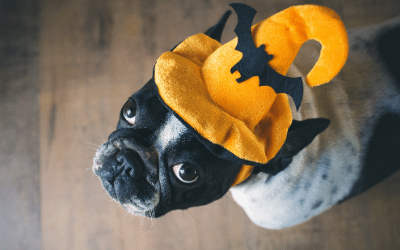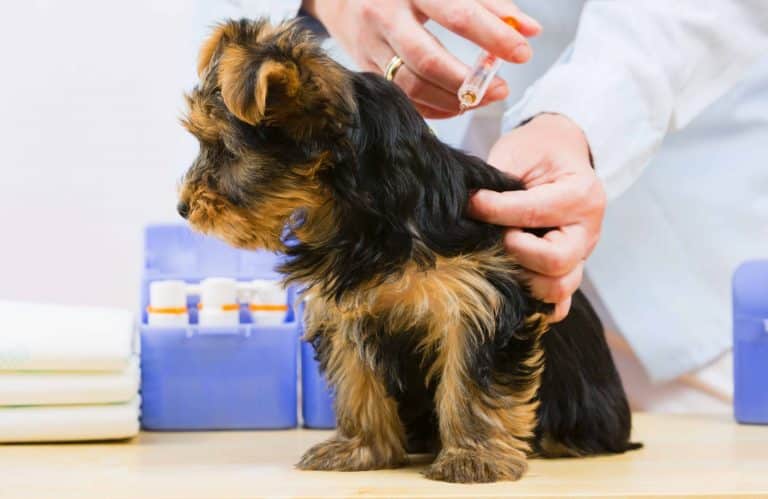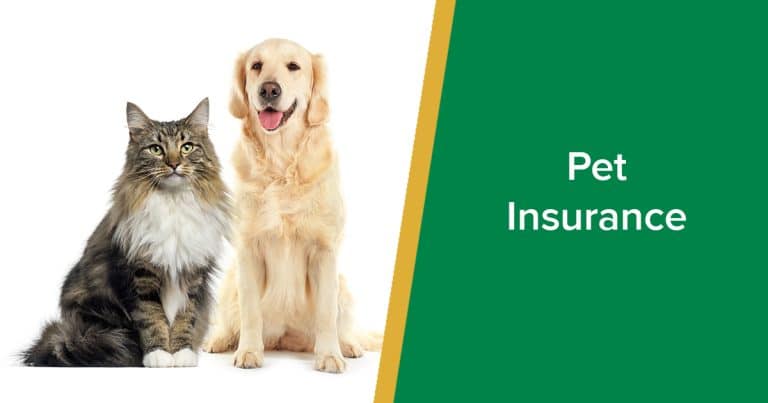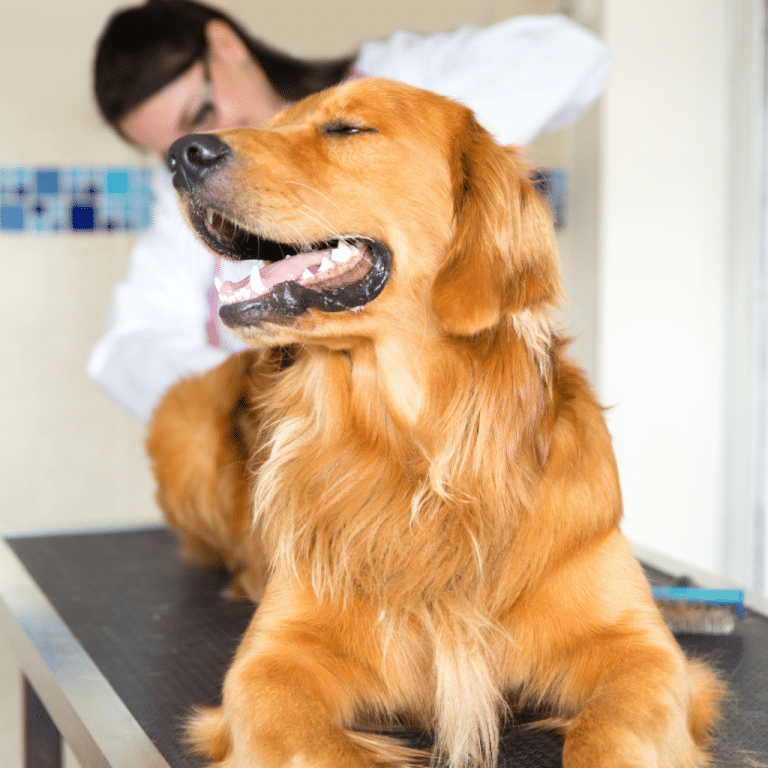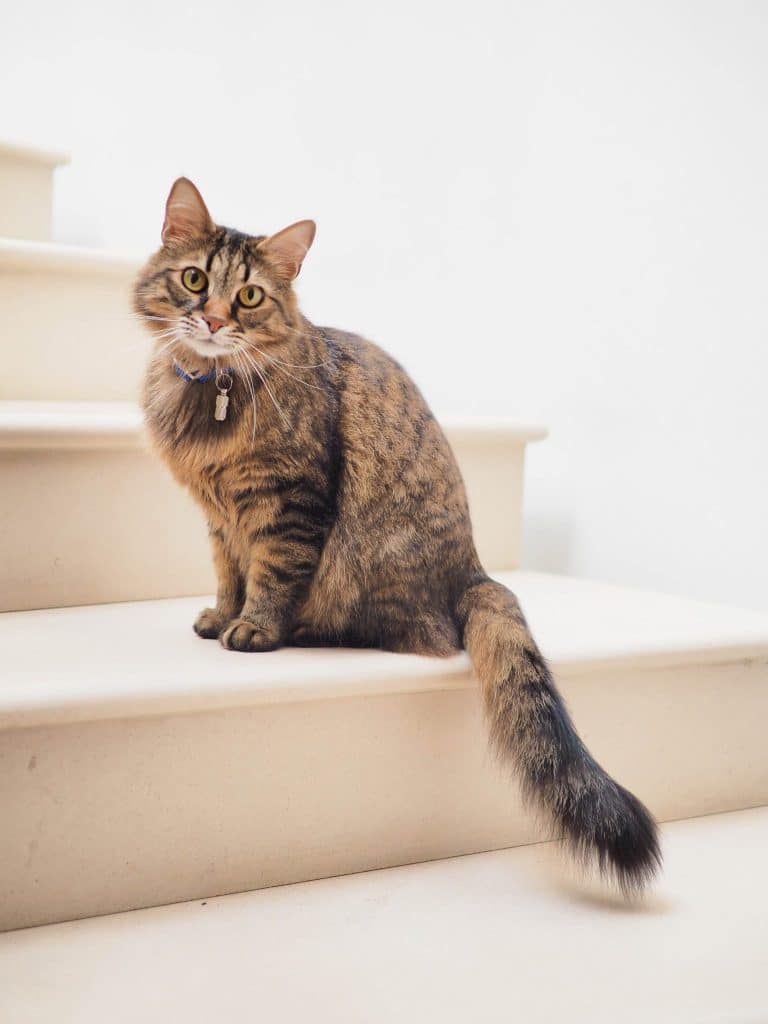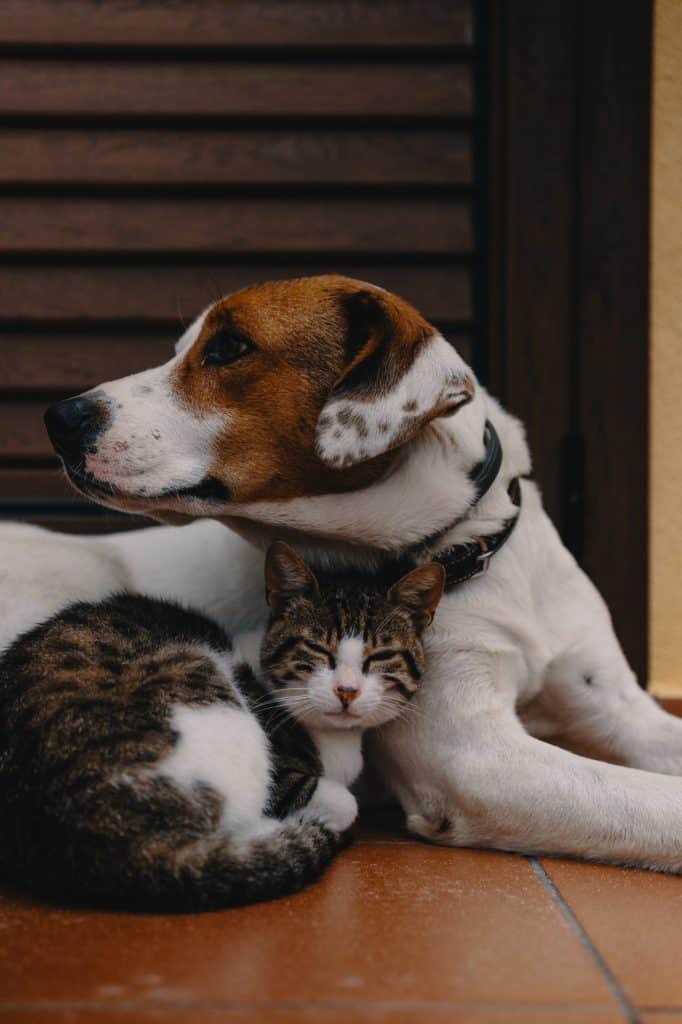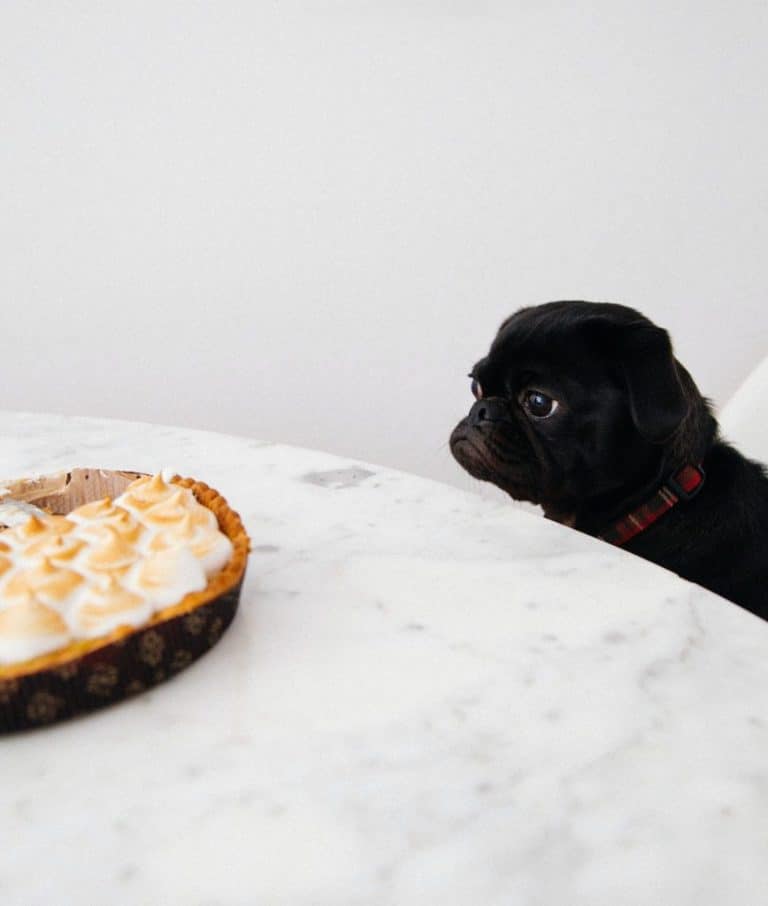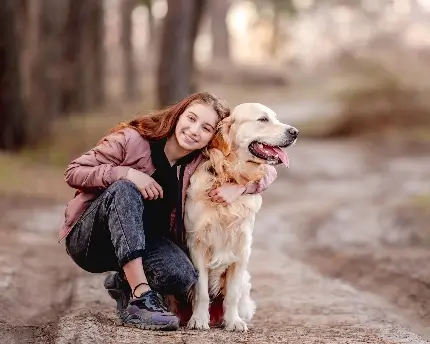Trick or treat! Halloween is here again! Costumes are picked, neighborhood routes are planned, and candy is anticipated! Halloween is a fun time of the year, but what about your pets?
Some pets don’t mind the sights and sounds of Halloween. Others have a hard time with it. Some dogs bark with every knock on the door or shout of “Trick or Treat!” Some cats try to escape – either through an open door or under the bed.
Tips & Tricks to make Halloween safe for everyone
- Keep decorations animal friendly. With the swipe of a tail, a candle-lit Jack-o-lantern can become a fire hazard. Be mindful of where you place the spooky spider webs. The fake webs can get caught in fur, faces, and paws,. It can also can pose a danger to migrating birds and butterflies.
- Secure your pet. While it might seem fun to dress Fido up in a unicorn or dragon costume and have him “help” give out candy. He might become anxious with the constant knocking. Keep your pet somewhere safe in the house to make the evening easier and more enjoyable for everyone.
- Leave your dog at home. The extra people and all those strange costumes could cause your dog to become agitated. If you decide to take your dog with you, keep him on a leash, close to you, and under control. The hub-bub of the night may cause a usually friendly dog to bark, growl, or snap at children or other dogs.
- No sharing of candy! Chocolate is toxic to both dogs and cats, and can cause vomiting, diarrhea, tremors, and seizures, and at times be fatal. Gum and candies sweetened with xylitol can cause liver failure. Foil and cellophane wrappers can cause intestinal upset or even an intestinal blockage.
In addition to planning the best Halloween for the kids in your home and neighborhood, take some time to plan how you can keep your pets safe too.
Furthermore, this year at Beach Avenue Animal Hospital we are holding a Halloween costume competition! Send us a picture of your dressed up pet, and you may win a free annual check up!
LifeLearn News
Note: This article, written by LifeLearn Animal Health (LifeLearn Inc.) is licensed to this practice for the personal use of our clients. Any copying, printing or further distribution is prohibited without the express written permission of Lifelearn. Please note that the news information presented here is NOT a substitute for a proper consultation and/or clinical examination of your pet by a veterinarian.

